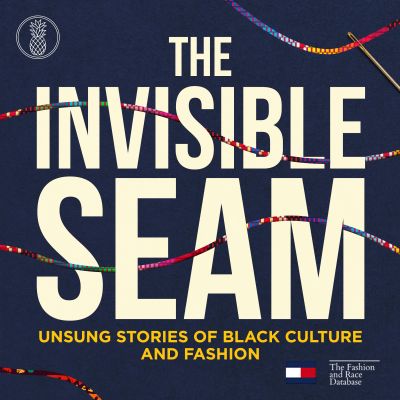Often unappreciated, but never unnoticed - welcome to the show that celebrates Black contributions to fashion. Hosted by fashion educator Kimberly Jenkins, this five-part series explores moments in history when Black Americans demanded respect, challenged norms, built community and imagined the future - all through what they wore. From The Fashion and Race Database, Tommy Hilfiger’s People’s Place Program and Pineapple Street Studios.
https://global.tommy.com/en_int/collection/detail/-the-invisible-seam
episode 2: Rhythm and Muse
When hip-hop’s popularity skyrocketed in the 90s and early 2000s, designers and stylists embraced—and dressed—their tribes. And the world took notice. Featuring Monica Morrow, Boz Bradshaw, Elena Romero and April Walker.
Syllabus:
- The multi-billion dollar fashion industry didn’t become so profitable on its own. Check out the book, Free Stylin': How Hip-Hop Changed the Fashion Industry, where author (and guest) Elena Romero breaks down how hip hop fashion went “from the ‘hood’ to the runway.”
- What were some of the most defining fashion labels and looks in hip hop fashion history? The essay, “A Great Day in Hip Hop – A Decade of Hip Hop Style’s Influences” brings it all together, and urges us to never forget.
- Check out our profile of Misa Hylton, who was a contemporary of Monica and Boz, advocating to dress Black music artists.
- A great way to take in all of the incredible hip hop style from the past is to see it in motion. Sit back and watch the documentary Fresh Dressed for an introduction to hip hop’s pioneers and tastemakers.
- Black fashion contributions have had a global impact, and the industry doesn’t hesitate to monetize it – often with no credit. The book White Negroes: When Cornrows Were in Vogue... and Other Thoughts on Cultural Appropriation builds an argument for why this is problematic and even harmful.
- How many of you are familiar with the name Isaiah Rankin when it comes to head-turning streetwear?Guest Elizabeth Way provides a formal introduction.
- Guest April Walker told us about the influence that a particular streetwear icon had on her design and business trajectory. You can read his story in the memoir, Dapper Dan: Made in Harlem.
- Black music artists have been setting the trends for at least a century. Guest Elizabeth Way takes us back in time to acknowledge the unforgettable menswear legacy of Sam Cooke.
- The multitalented performer and activist Eartha Kitt was wearing luxury fashion labels amidst the segregation era. This profile reminds us of the power she wielded with her style, leaving a feminist sartorial legacy that reverberates to this day.
For a transcript of this episode, please visit fashionandrace.org/database/ep2-rhythm-and-muse.
.
To learn more about listener data and our privacy practices visit: https://www.audacyinc.com/privacy-policy
Learn more about your ad choices. Visit https://podcastchoices.com/adchoices
